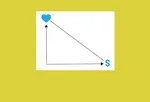Behavioral Economics
Ideas and insight about behavioral economics from MIT Sloan.
New book explores the economic limits of a moral life
Two economists offer a framework for thinking about the place of values in the decisions of modern life.
4 ways the US election could impact 2025 climate policy
A Republican sweep could reverse the Biden administration’s signature 2022 climate law. MIT Sloan economist Catherine Wolfram analyzes four potential outcomes.
Wealthier workers benefit most from retirement savings ‘nudges’
When employers hold back wages for retirement savings, younger consumers and less-wealthy people cut their spending. Wealthier individuals tap their deposit accounts.
Social learning influences green tech adoption
Government subsidies for green tech should consider the role of social learning in consumer decision making.
How retirement saving incentives amplify wealth gaps in the U.S.
White employees receive nearly twice as much in employer and tax subsidies for retirement saving than Black and Hispanic workers.
Couples miss out when they fail to coordinate retirement benefits
Better communication between spouses could translate to saving an average of almost $700 more every year, new MIT Sloan research shows.
How informed are voters about political news?
Journalistic truth isn’t dead, a new study has found, but socioeconomic factors affect people’s ability to identify real news.
4 questions to ask before swapping out human labor for AI
Generative artificial intelligence is a game changer, but it’s not for every task. Here are four ideas to consider from an MIT labor economist.
Study demonstrates the value of ‘long ties’
Maintaining relationships with distant contacts takes work but results in a more diverse network and increased access to economic opportunities.
New initiative tracks the trends remaking consumer finance
MIT Sloan’s Consumer Finance Initiative delves into household finance, fintech, crypto, savings and lending markets, and retirement funds.










